A complete guide to your licensing requirements to operate heavy machinery, plant and equipment across each state in Australia.
You need to be considered 'comptent' in order to operate heavy plant and machinery across Australia. But what defines competency is different in each state and territory, and also varies by type of machine. We break down your license requirements in each Australian state.
iseekplant is a collection of over 25,000 construction suppliers who provide assets and services to a variety of construction processes on civil, commercial, residential, agricultural and mining jobs sites across Australia. In our database is over 60,000 construction professionals - a big chunk of these people are licensed or competent in operating heavy machinery in Australia. Over the years, licensing requirements for heavy plant and equipment have changed substantially - and what's required to get into the cabin of a machine or provide a service using a machine - is very different since the WHS Legislation changed in 2011.
This is largely due to the growing importance of site safety - as construction companies and governments alike has increased their focus on the safety of the construction industry and reviewed and increased the legislation necessary to keep construction workers safe on sites. The government finally realised, around the time they repealed the WHS laws, that the state-based accreditation system was different, confusing, painful and limited the flow of people and gear across Australia. So they got their acts together and created Safework Australia - which is now the national body working towards standardisation of licensing and ticketing practises across the country.
What is Safework Australia?
Around 2011, Safework Australia was established to unify and nationalise the workplace health and safety legislation that was at the time, completely different in each state and territory. This was frustrating for Australian citizens and construction professionals who wished to move around Australia and apply their trade skills. Different tickets and certificates were required, confusion abounded and highly skilled construction workers weren't able to move about the country working with ease. Safework Australia is a national body but it operates at each state level in chapters. And whilst they have unified a lot of the rules and standardised their applications in each state - there still remains a complex system of different licensing needs, as well as differing definitions of plant and high-risk work that can be confusing. There are a raft of rules specific to individuals who want to operate, versus people who want to perform contracting as a small business. And whilst Safework guidelines have been standardised, the small business licensing system in each state remains as different, and confusing, as ever. Below we break down how the Safework rules apply in each state, as well as the additional licensing requirements in each state and territory.
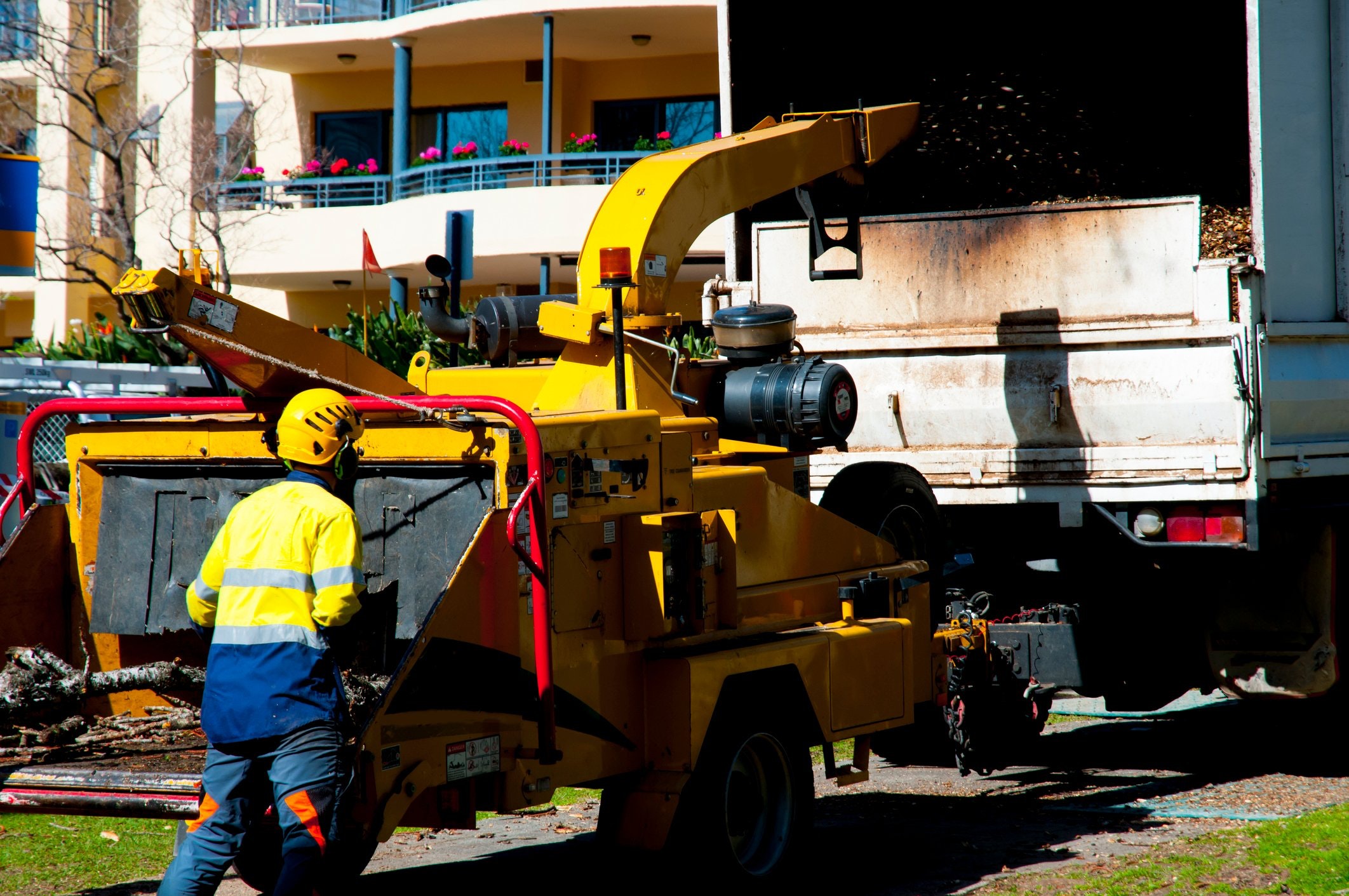
Queensland Heavy Machinery Operator Guidelines
Worksafe Queensland is the primary legislative regulator for heavy machinery licensing - such as earthmoving equipment licensing, crane licensing , bridge and gantry control, excavator licensing , road roller licensing , grader licensing , skid steer licensing and dozer licensing in Queensland. This is the body that enforces and administers the Work Health and Safety Act of 2011 . When it comes to heavy machinery operated on roads - such as trucks and heavy haulage - both Queensland Transport and the National Heavy Vehicle Regulator - NHVR - play a role in legislating the operation of heavy transport in Queensland on roads, alongside the registration of vehicles used in the course of these businesses. So you could be operating an ADT off-road one day, and applying the Safework guidlines to the operation of that articulated dump truck , but the moment you are driving a tipper on a road, the rules change completely and now you're in the NHVR world and need to be aware of a whole different set of rules and licensing requirements. If you want to know more about the specifics of tipper licensing please click here .
Do I need a licence to operate heavy machinery in Queensland?
You no longer need to hold an earthmoving or particular crane (EPC) certificate to operate all of the above-mentioned machines on a construction site in Queensland. This is a big change in the legislation from the past - when operators need to be 'ticketed' to operate a machine and prove competency to their manager. This was a major issue for a lot of long-term operators - who had learnt their craft over their careers and a change towards needing a 'ticket' to prove they are competent was administratively burdensome and kind of pointless in their view, and the view of the people managing them onsite. So they turned the rules on their head and made the person supervising the operator responsible for their safety.
What is a PCBU? A Person Conducting Business Undertaking...
The law in Queensland has now changed to making the person managing the plant or site responsible for ensuring that all operators are competent. They call this the 'person conducting a business undertaking or PCBU- so the burden of safe operation of plant has shifted from the person operating to the person responsible for the person operating. The process is pretty opaque in terms of what that person might do or see to satisfy themselves that operators on their site are competent, but it does allow for common sense. So how this works in real life, is that all the different head contractors, such as the Tier 1s, Tier 2s and Tier 3 contractors all interpret it differently and require different paperwork, so as skilled labour moves between the sites where different guidelines are applied and it probably, in practice, has ended up as confused as it was before. But notwithstanding that - the legislation simply states that the PCBU ensures:
Operators receive adequate information , training, instruction and supervision
Operators are competent
Appropriate use of equipment to minimise health and safety risks.
So this is a big shift in how this legislation works - in that the PCBU has a duty of care to ensure the people operating heavy equipment under their supervision know how to do it. This includes paperwork associated with the safe operation of plant, inspection & shut down procedures, traffic rules & emergency procedures . In terms of training - the Safework guidelines recognise two types of training:
- Formal Training - including completing a nationally recognised course through a registered training organisation (RTO) or industry training school
- Informal Training - including on-the-job training supervised by another competent person involving the plant being operated and the associated hazards.
What is considered Evidence of Operator Competency?
Worksafe says that the following documents qualify as evidence of an operator's competency - however some of them are as clear as mud and very open to interpretation:
- Certificate issued under WHS Guidelines pre 2008
- Statement of Attainment in a previous QLD Unit of Competency (such as Operate a Excavator Ticket OHSCER205A)
- Statement of Attainment in a National Unit of Competency such as 'Civil Construction Excavator Operations'
- On the job training by an experienced or competent person as verified by log books and previous employer references
- Other provable forms of structured in-house training where resources are available in your office that verify that it occurred.
If you are a place that employs operators, or you are an operator - we recommend you obtain this evidence of competency and keep for your own records to ensure smooth passage onto sites, but also if you want to change jobs or contractor employers in the future. It is possible that they might need different documents than others, and indeed might interpret the vague legislation in a variety of ways.
License Required for Operating a Crane
There is one exclusion to these rules up above - which is related to the operation of cranes, operation of boom lifts or telehandlers , or other machines in crane mode - and this is where you need a dogging Heavy HRW (high risk work) licence. This is required anytime you are doing a sling or lift (or rigging ) where there is no competent person to verify the weight of the load, the sling technique, the condition of the lifting gear, the lifting points or when the lifting procedure can't be prepared and signed off by a competent person. So - in lamens terms - if its a simple lift and there is a competent person in charge to plan and execute the lift you can do it without a HRW licence.
It's not just cranes that this applies to, you also need a licence to operate a cherry picker and a licence to operate a scissor lift , as other lifting and elevating equipment that can be considered as High Risk Work. In all other instances, the person operating the crane or other machine in crane mode must have this license. In applying for the HRW licence- it requires the same type of evidence of competency as described above - an indication of formal or informal training or an RTO certificate. This licence is a renewable photographic licence similar to your drivers licence. This is now the case in all states other than WA - that has only just implemented this rule in March 2022 and they are giving everyone 2 years to get their licence before they will heavily enforce the legislation. If you would prefer not to operate your gear and want someone verified in Queensland, who is trustworthy and competent, then organise the best quote available on iseekplant using our Get a Quote Tool .
.jpg?width=3600&name=shutterstock_72972283%20(1).jpg)
New South Wales Heavy Machinery Operator Guidelines
The office of Fair Trading in NSW plays a role regulating the use of earthmoving equipment and heavy machinery in New South Wales alongside of Safework NSW . Below we'll explain more about the differing rules. Safework NSW operates the same way as other Safework state branches. They apply the national rules governing the pure operation of EPC - earthmoving and particular cranes and High Risk Work. When it comes to EPC equipment in NSW (and in other states in Australia) - an official licence is not required, but the person in charge, called the Person Conducting Business Undertakings (PCBU) must be competent and have completed the official paperwork. This is now standard nationally. How this manifests in real life - is that if you are working for a contractor, subcontractor or plant hire company on a site in New South Wales, someone will check that you are able to operate that machine, understand the risks before starting and that you understand the safety rules. This will be explained to you during a comprehensive site induction , and likely every morning during the pre-start checks . So as an operator wishing to work on a site, your employer will collate your competency paperwork - which comprises of your proof of formal or informal training - and supply that to the site supervisor prior to you starting work.
However, in New South Wales - if you work for yourself in your own business as an owner / operator, small contractor or sole trader, you do need a different type of licence to do contracting or advertise that you are a contractor. This is where the Office of Fair Trading in NSW comes in. If you intend to do any contracting or advertise as a contractor - you need to have a licence to do any residential building work in excess of $5,000 in labour and materials in New South Wales. They consider ' excavating ' as a trade work, so all machines and people that do 'excavating' need to be licenced under these guidelines. We know excavating is a specific term, but in this setting, it relates to all types of earthmoving activities and specifies even the licencing requirements for operating a scraper , licensing needs for vacuum trucks or operating a water cart , or even more niche things like operating a trencher , and is therefore a broad reference to all types of machines and services in our sphere. There are 3 types of licence you can obtain:
Contractor Licence. This allows you to contract and advertise to be a contractor. But you can only do the types of work specified on the licence. This type of licence can be issued to individuals, companies or partnerships.
Qualified Supervisor Certificate. Allows you to supervise and do the work described on your certificate. These are only issued to individuals, and doesn't allow you to contract for work.
Endorsed Contractor Licence. Issued to individuals who are at the qualified supervisor level plus they want to do contract work.
In order to apply for any of these licences, you need to have qualifications, past licence information, a detailed background of your employment and experience, paperwork around any compliance issues (or criminal offences), proof of identity and anywhere between about $120 and $2,500 depending on if you are an individual or a company ( check the schedule of fees out here).
Qualifications needed in New South Wales for Plant Operation as a Contractor
So this is where the rubber hits the road in terms of the ticketing or certificates needed to actually get a licence to be a contractor in New South Wales. Unfortunately, NSW is a state that doesn't really recognise informal training or on the job training, it requires its operators and contractors to complete formal certificates via registered training organisations for the purposes of submitting for a Fair Work Contractor licence. However, it does offer state reciprocity - so if you have done something equivalent in QLD or somewhere else, it will recognise this.
Qualifications recognised by New South Wales in Operator Competency:
- RII30820 Certificate III in Civil Construction Plant Operations
- RII30815/ RII30813/ RII30809 Certificate III in Civil Construction Plant Operations
- BCC30607 Certificate III in Civil Construction (Plant Operation)
- BCC30603 Certificate III in Civil Construction (Plant Operation)
- BCC30198 Certificate III in Civil Construction (Plant)
- Qualification 2555 Certificate III in Civil Construction (Plant Operator),
- Previous licence without restrictions or conditions
- An equivalent of the above from another State or Territory or New Zealand.
You won't get a licence if you've been in bankruptcy or administration in the last three years, or if you've been wound up, fraudulent or to jail - so make sure you keep your nose clean to keep (or get) your licence. If this all sounds too hard, then you can hire verified construction suppliers in New South Wales from iseekplant - and they've done the hard yards for you. Click here to search in NSW for suppliers .
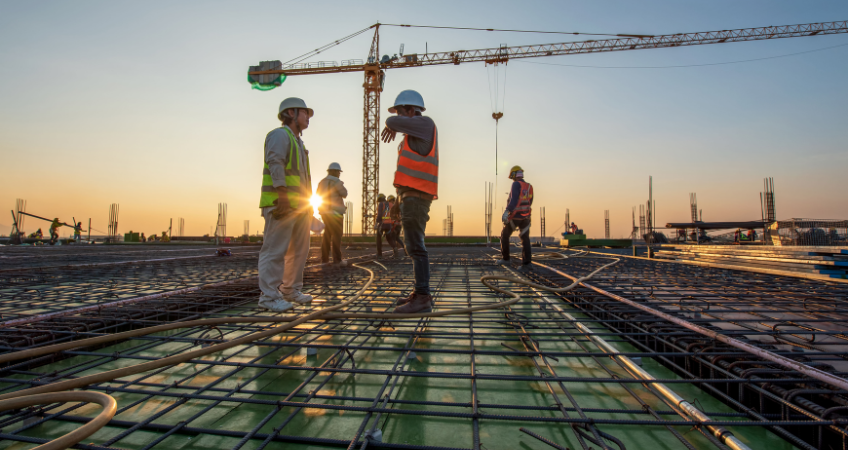
Victoria Heavy Machine Operator Licence Guidelines
Worksafe Victoria operates very similarly to Worksafe Queensland - and is the organisation managing the performance of 'high risk tasks'. In Victoria, as in the other states that are abiding by the national Safework framework, the onus is on the person supervising the plant operator. You can operate an excavator , dozer , roller etc without an official licence provided the PCBU - person conducting the business undertaking - is competent. The guidelines for what competency is in Victoria is the same - they must have informal or formal training, they must know the risks and have sufficient paperwork to prove they are competent.
When you need a High Risk Task Licence in Victoria
High risks tasks are defined by Worksafe Victoria as (in lamens terms):
- Scaffolding , rigging, cranes, forklifts , boilers and pressure equipment
- Engineered strong processes such as cutting, grinding or abrasive polishing
- Asbestos removal
- Transporting dangerous goods, or using dangerous goods posing a security concern
- Anything related to fireworks or explosives (makes sense!)
- Operating a major hazard facility
- Using carcinogens as part of your work
There are a raft of different licences that relate to all sorts of work conducted by suppliers on iseekplant - but the most relevant ones to us are called the Construction Induction Training White Card and the High Risk Work Licence (of which there are 29 kinds!)
Types of High Risk Work Licence in Victoria
There are 29 different classes of high risk work licence that use plant and equipment. There are individual licences for types or cranes or vehicles - as well as Basic, Intermediate and Advanced licence variants. Very complicated indeed! Some of them aren't relevant to users or suppliers to iseekplant - so below is a condensed snapshot of the ones needed for most civil and commercial construction work in Victoria:
- SB - Basic Scaffolding Licence
- SI - Intermediate ScaffoldingLicence
- SA - Advanced ScaffoldingLicence
- DG - DoggingLicence
- RB - Basic RiggingLicence
- RI - Intermediate RiggingLicence
- RA - Advanced RiggingLicence
- CT - Tower Crane OperationLicence
- CP - Boom Crane OperationLicence
- CS - Self Erecting Tower CraneLicence
- CN - Non-slewing mobile crane operation licence
- Then there are 3 types of slewing mobile crane licences- up to 20 tonnes, 60 tonnes & over 100 tonnes.
- WP - Elevating Work Platform Licence
- PC - Concrete-placing boom operation Licence
- LF - Forklift licence
- LO - Order picking forklift truck licence
So yeah - really specific types of licences, and heaps of machine types NOT referenced here. In order to get one of these licences, or add an additional class to your existing high risk work license, then you need to head to your nearest Victorian RTO - do the training, and pass the test. You then take your Assessment Number and notice of Assessment to get your license.
Construction Induction Training Whitecard - Victoria
A white card or 'general construction induction card' is required for workers wishing to work on construction sites. In Victoria - you must conduct training via an RTO and their preference is you do it in person - rather than through any elearning or online course. The Course code they recognise as having been completed prior to obtaining the white card is as follows:
CPCWHS1001 - Prepare to work safely in the construction industry
It takes about 6 hours, you need your photographic licence and your induction card will be issued upon completion of your course. There aren't any options they will accept online, and you need to be very careful about only paying an RTO and showing up in person - because the Worksafe Victoria site warns of scammer sites offering this course. Rather than jumping through all these hoops to operate machinery yourself, why don't you hire a verified supplier from iseekplant for your project. If you want iseekplant to get you the best quote available you can use our Get a Quote tool .
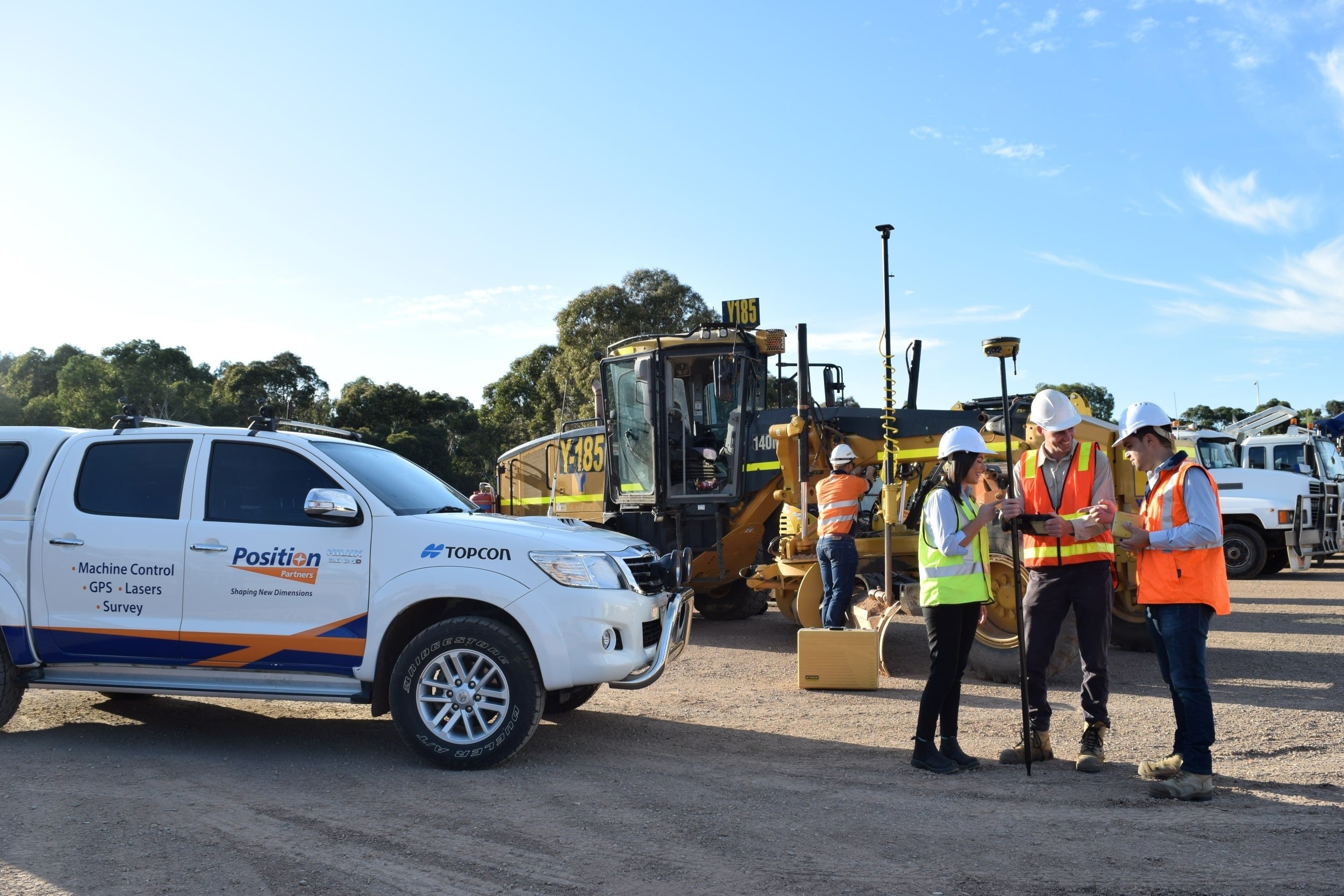
South Australia Heavy Machinery Guidelines
The South Australian Government calls heavy equipment operating 'load shifting equipment' which is a slightly different definition than in the other states. Regardless of the vernacular being different - the national guidelines governed by Safework around safely operating load shifting equipment are materially the same in South Australia as they are elsewhere - in that you no longer need a 'Notice of Satisfactory Assessment' issued by an accredited assessor to operate front end loaders , backhoes , skid steers, excavators, dozers, flying foxes (what?) and drag lines. Despite not being formally mentioned, even machines like street sweepers have licensing requirements that interact with both the Safework legislation and the road registration guidelines in each state.
How to Prove Operator Competency in South Australia
As Worksafe has worked to unify the guidelines for operator ticketing and licensing across Australia - it has worked to ensure that the previous licences are still recognised and transferable across states. The SA Government says that the following will be sufficient to prove competency for load shifting equipment:
- A previous NSA (notice of satisfactory assessment) issued by a regulator such as Safework SA.
- Statement of attainment from a nationally accredited RTO.
- Certificate of competency for plant and equipment issued by a regulatory body.
- Industry competency card or evidence of training at an RTO to an NOHSC:7019 level
- Evidence of on-the-job training via records, log books and that person must also be judged as competent.
- Evidence of competency and experience via proven past work history.
Transfering a High Risk Work Licence to South Australia
Now, with the nationalisation of Worksafe and the change in Workplace Health and Safety Legislation in 2011, you can convert your HRW Licence from another state to South Australian licence when you move to South Australia and wish to work on Construction sites. You need to have a current license in another state to easily make the transfer - however if your license has lapsed from interstate - you can use it as proof when you make a new application and it should work whether you're transferring or applying for a new license. If you would prefer someone else to do the dirty work for you, then use iseekplant's Get a Quote tool and we will get you the best quotes available in your area!
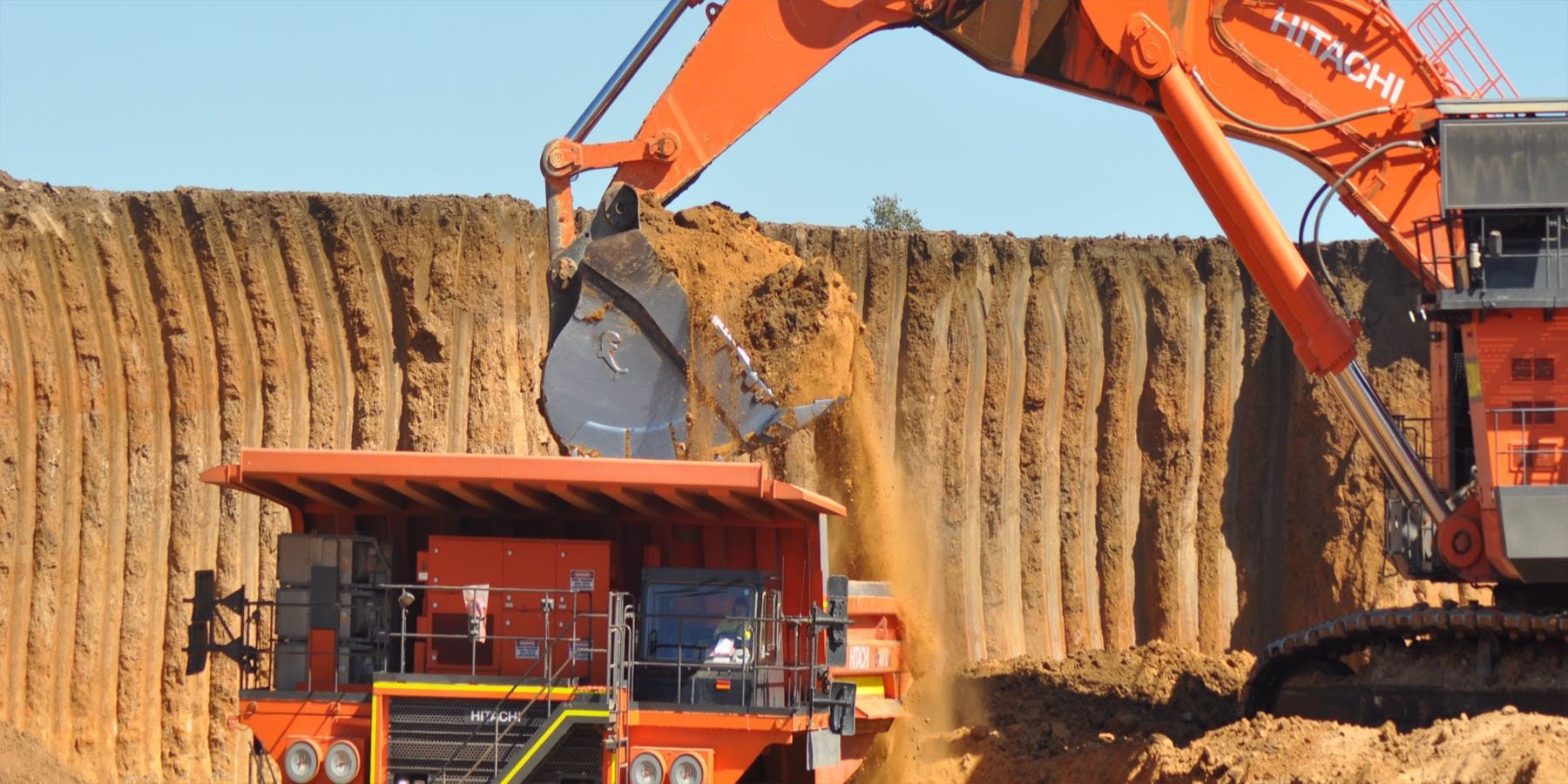
Western Australia Heavy Machinery Operator Guidelines
So if you've been reading this article chronologically you will notice a couple of reoccurring themes. Firstly - that Safework branches in each of the states are governing the national licensing frameworks now and trying to standardise ticketing across Australia. You'll also notice, that in each of the states, the State Government helpfully describes the ticketing process using completely different language - and indeed in WA - the Department of Mines, Industry Regulation and Safety refers to different types of plant and machinery using language and categorisation unique to it. In WA - plant and machinery is broken up into the following categories - metal cutting guillotines, laser hazards, power presses, bridge cranes, chainsaws, brake presses, angle grinders, fire alarms and lift hones and amusement devices. Which hardly seems like an exhaustive list, and indeed makes the industrial services space in WA sound especially strange and wonderful.
High Risk Work Licence for Earthmoving Machinery as a Crane until 2024
A weird nuance of the WA legislation - is that you need a High Risk Work Licence in all other states if you are operating an earthmoving machine as a crane (ie lifting, slinging etc) - where as in WA this legislation only became effective in March 2022. The WA Government has given construction workers in the state a 2 year grace period to get their act together and ensure those who are unlicensed get a HRW quick smart. Many people in WA have been 'blindsided' by this change in the legislation that will require thousands of operators to get a new licence to perform small lifting tasks onsite. So over the next couple of years you can expect those people to be trundling off to the RTOs to get certified to undertake lifting tasks on site otherwise they might run into a bit of strife.
Agricultural Vehicle Permits in Western Australia
Driving an agricultural machine (such as a tractor ) on a public road in WA requires a special permit, but that permit is related to the size of the machine, its axel length, tonnage and gross mass. This is a complicated topic, so click here for the full work up on whether you need a permit. There is also the Heavy Rigid licensing rules across Australia which relate to driving a truck of various axel sizes on the highways and roads.
Small Business Licences you need in Construction in WA
The Small Business Development Corporation in the Government of Western Australia issues a range of licences to small businesses who need to do certain types of work - plus administers a huge array of 'codes of conduct' associated with tasks and industries. Examples of licenses you might need when working as a contractor in WA in construction:
- Licence for Construction or Installation of Pipeline On and From any Jetty
- Licence for Construction Induction Training
- Licence for Approval of Noise Management Plan - Construction
- Approval to Carry Out Building Activity in WA
- Approval of Developments near the Swan or Canning Rivers
- Certificate of Survey
- Consent for Construction on Corridor Land
- Construction Induction Training (as per the usual Safework guidelines)
- Construction Drone Registration
- First Class Mine Manager's Certificate of Competency
- Permit to Interfere with the Bed or Banks of a Watercourse
- Well Construction Licence
- Works Approval
If all this paperwork seems like a headache, you can just hire one of Western Australia's verified construction suppliers to do the job for you. Use iseekplant's Get a Quote tool and we will get you the best quotes available in WA.
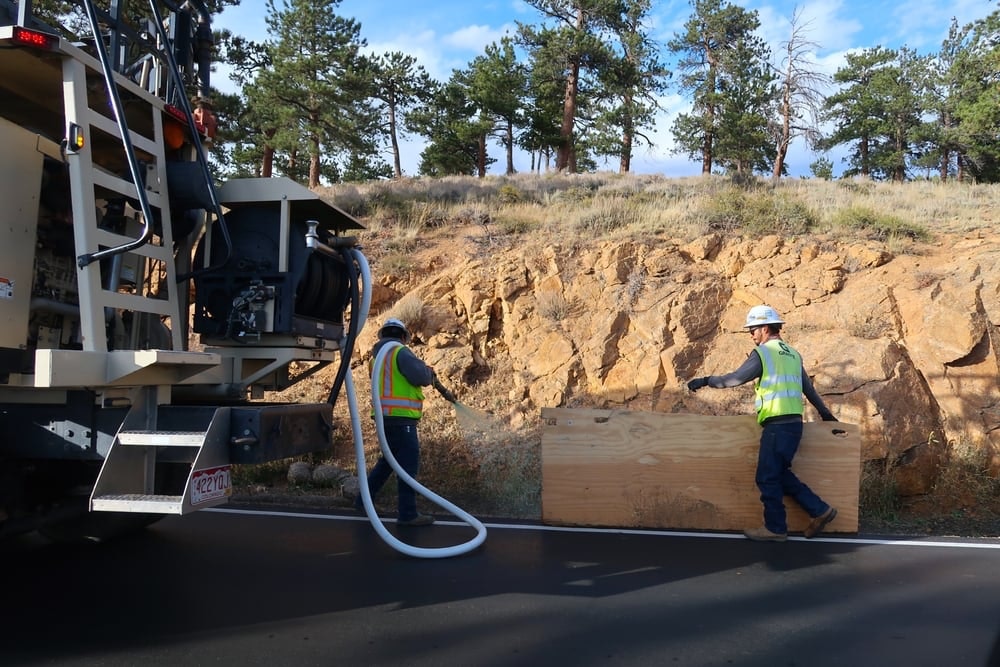
Northern Territory Heavy Machinery Operator Guidelines
Just for something different, the Northern Territory Government calls earthmoving plant and equipment ' a special purpose plant and equipment vehicle for work purposes ' which is yet another way the States are helping Australians understand the same concept using different language! Thanks NT Gov.
Registering a Special Purpose Plant & Equipment Vehicle in NT
So you must first register your special purpose plant and equipment vehicle via the same government body as the car licensing system - use the NT Gov site and their driving and transport division. If you are the owner of one of these so described special purpose plant and equipment vehicles for work purposes (total mouthful) - or as we say on iseekplant - a 'bit of gear' then you need to have the following in order to have it registered:
- Rotating flashing amber light
- Front and rear lighting for visibility
- Read vision mirror
- Horn or audible warning device
- Brakes and steering (of course)
- Red rear reflectors.
Types of Works Licences Needed in the Northern Territory
So Safework NT is the arbiter of the licensing for construction work in the Northern Territory and offers High Risk Work Licences for the same categories as most of the other states. It also does asbestos licensing, licensing for dangerous goods, plant registration, licensing for fireworks, Construction Induction White Cards and transfer of licenses between the state bodies. So it is very similar in how it works as compared to the other Safework branches. All these licences can be applied for via the Territory Business Centre - which operates some 5 centres across the Darwin , Big Rivers, Barkly, Central Australia and East Arnhem regions - so you can pop in there to apply for your works licences if you're local to Northern Territory. Can't get to a Business Centre in Arnhem Land to get your work licence? Us either! So why don't you use iseekplant's Get a Quote tool to find a verified supplier local to NT and we will get you the best quotes available.
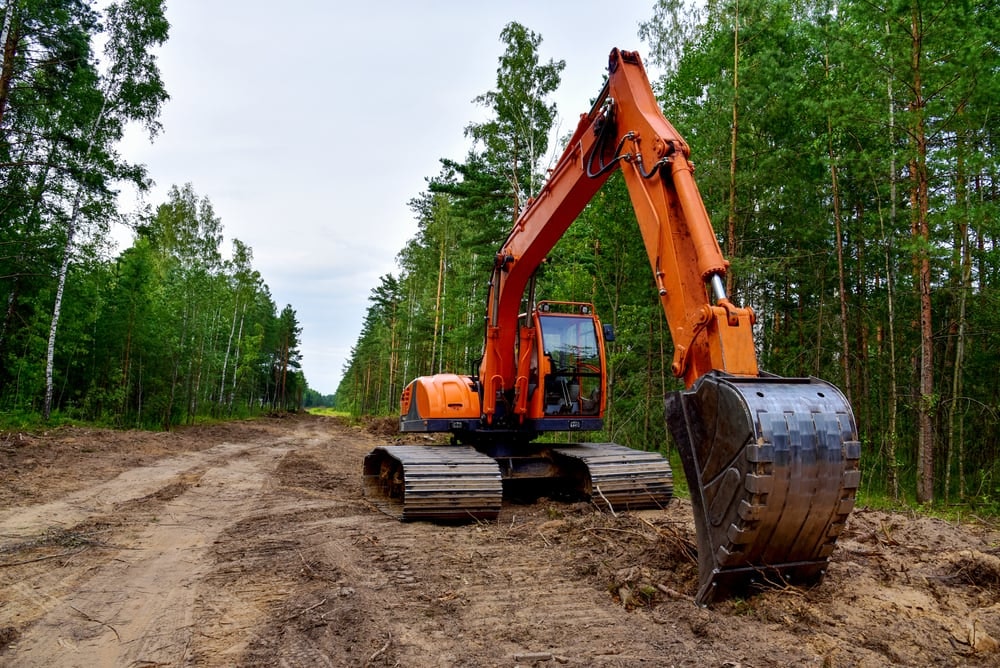
Tasmania Heavy Machinery Operator Guidelines
Following the bouncing ball of plant and equipment licensing regulations and bodies in Tasmania is confusing work even for us - and we're experts in the field! So let me try to break this down for you as simply as possible so if you're wondering if you can work as a machinery operator in Tasmania, or a contractor, you know where to look.
Worksafe Tasmania - High Risk Work Licences, Plant Registration
Just for a bit of extra trans-tasman confusion, Worksafe Tasmania should not be confused with Safework in any other state! But we wouldn't be surprised if you were confused... Firstly you need to register plant and equipment with Worksafe Tasmania prior to using them - and so this involves them being inspected by a competent person and judged safe to operate. Once you register an item of plant, that registration lasts for five years. You need to register this plant if it falls into the following categories: amusement devices, boilers, pressure vehicles, building maintenance units, concrete placing booms , lifts & escalators, mobile cranes and tower cranes. High Risk Work Licences in Tasmania are acquired in a similar way to other states in that you need to complete a training course in person via a RTO that is recognised and accredited. You are then assessed by an accredited assessor and you get a pink copy which acts as an interim license while your white copy is being assessed and submitted. You can use your pink copy as a license for 60 days before needing to head into Service Tasmania to get the final paperwork sorted out. That's called the 'White Licence'.
Building Services Provider Licences
You'll need one of these if you intend to act as a contractor in the following explained capacities. There are 3 types of licenced 'builder' under the Tasmania guidelines and these licences can be applied for via the Consumer, Building and Occupational Services section of the Tasmania Government:
1. Builder (General Construction) - this is defined as a builder responsible for managing or carrying out construction, demolition , alteration, additional or repair of any building or structure
2. Fire protection services builder - a specialist builder doing fire protection work
3. Demolisher - a specialist builder responsible for carrying out demolition works. In order to apply for any of these licenses, you need to have a minimum qualification and a minimum amount of supervised experience. This requires you to have worked for another licensed person before and demonstrate you've had that experience over time.
Rather than going through the extensive process to get licenced to operate plant and equipment in Tasmania - we recommend just hiring a local gun to do the work for you. Use iseekplant's get rates tool today!


